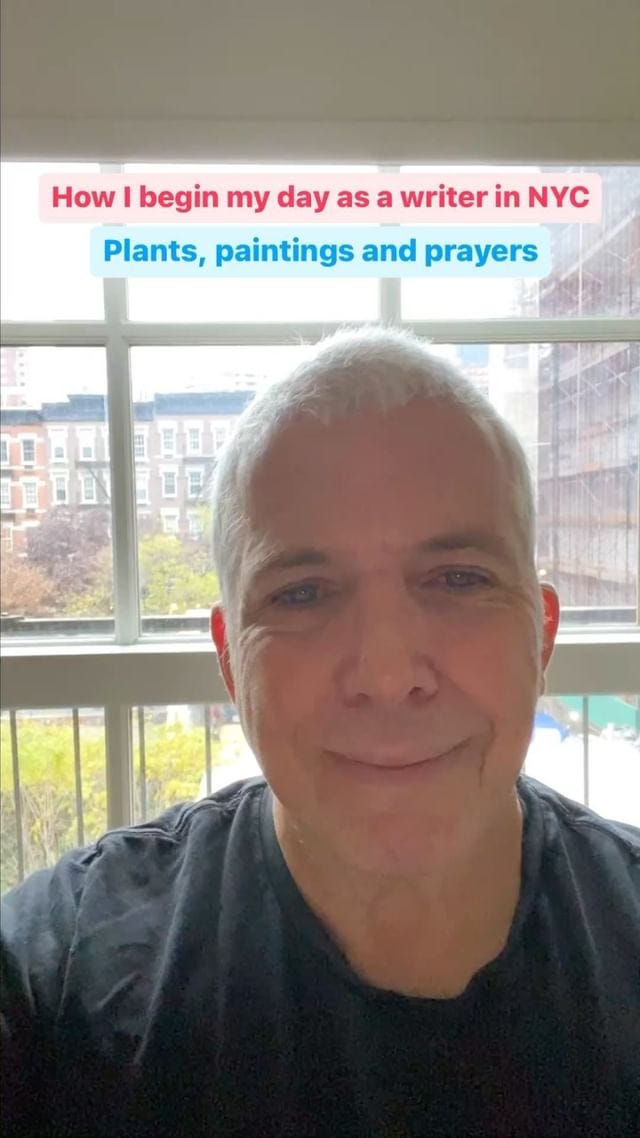Your creativity affects how you age
(No. 113) This moment is the best time to let loose. That's a fact.
When I was an ambitious writer in my late twenties, I longed to appear in an anthology called 20 under 30. Meaning the hottest, most creative short story writers under age 30 in the nation. At the time, my life was still defined by a decision I’d made when I was 22. A famous minimalist fiction writer named Frederick Barthelme had phoned me a couple of times, saying he wanted me to study in his graduate writing program at the University of Southern Mississippi, South Station, in Hattiesburg. (The name of the place appealed to my dark romanticism.) At the same time, Stanford University’s graduate School of Communications (journalism) was also courting me. Full scholarships to both. I chose Stanford, journalism, nonfiction.
I do not regret my choice (well, maybe). What I do regret is my inability over the years to reconcile the split the decision made in my creative life between commercial and non-commercial, between facts and imagination, and between combinations of all four of those factors. I have spent most of the last 42 years writing nonfiction for a living, and fiction so that I can live. Meaning, I couldn’t really do one without the other. My soul couldn’t live well without writing fiction and my body couldn’t survive without writing non-fiction (and that, barely. I never encourage people to become writers as a money-making career.)
I was a writing striver much of my life. I wanted big success. I wanted to have a big swinging book. I wanted to be recognized. I wanted to change the trajectory of the art of writing. And I guess I still do. Except now I’m aiming to be in an anthology titled “70 over 70.” And I think it will be a lot easier to get into that one. And I no longer see much of a divide between fiction and nonfiction — it’s all imagination, as I see it.
My creative life has deepened in my 60s. The pandemic has been among the most fruitful writing periods of my life. That’s not to say I’ve published many great things in the last few years — I haven’t. But I’ve written some fantastic stories. At this moment my agent is marketing a memoir I wrote about traveling through America in the early pandemic, thinking about my children, gender, freedom and getting older. And I’m serializing my novel, The Lost City of Desire, on this very newsletter, with chapters released about every week. I illustrate the chapters myself, with captions, and I find this new form creatively challenging and rewarding.
I don’t expect financial or fame rewards from either of these projects. Yet I do expect physical and emotional rewards. An important study published in the Journal of Aging Health (2021) found that “…higher levels of creativity in older men predicted a reduced risk of dying over the 18-year study follow-up.” And the National Institute on Aging says that creativity is an important path towards healthier aging.
These days anyone can publish writing, art or video online. AI tools make it easier for people to create works in these genres. And there’s always an audience to be found on Instagram or TikTok, even if it is tiny. We all are creative. We are born that way. As we get older, perhaps, we’ll find it easier to express these creative urges that to me feel like hands pushing up through my chest and into my brain until they exit. You just need to find a way to describe your own creativity. Look at it. Feel it. Draw or write or code with a connection to your truth (it’s a gut feeling), and you’ll be amazed at what you find.




